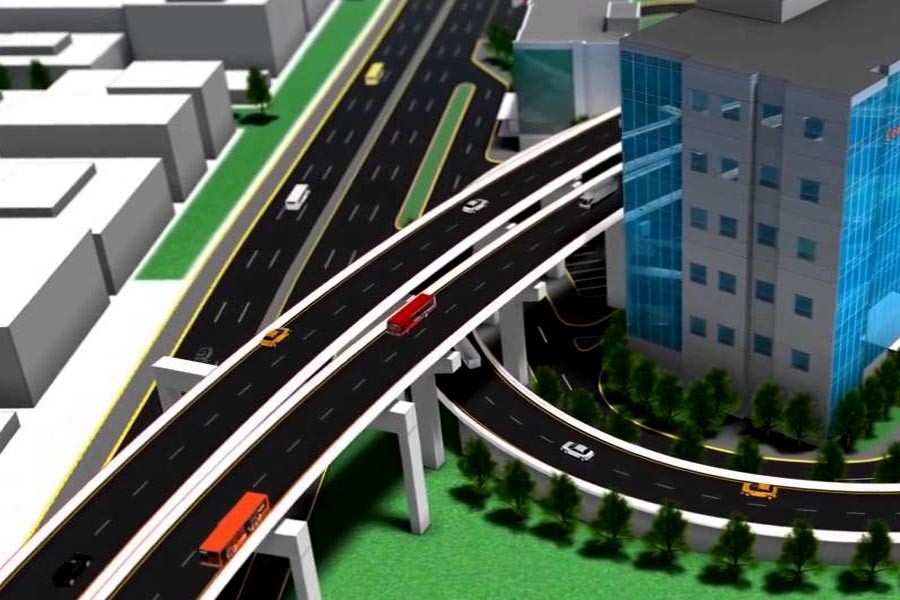Meticulous planning, effective organisation, competent leadership and rigorous controls are vital to the execution of any project. These become even more crucial in case of a mega project like the Dhaka Elevated Expressway (DEE) that promises to ease the chronic traffic congestion in the capital city of 18 million people. The project, launched by the prime minister in April 2011, was slated to be completed by 2014. But until now, in seven years, only 9.28 per cent of work has been finished. In fact, the DEE project was inaugurated for a second time - by the road transport and bridges minister, on this occasion - in 2015.
Inordinate delay in completion of project is not unique to the DEE. But it exemplifies the deficiencies in planning, preparation, financing and actual construction work of a project. As land acquisition complications held up construction for two years, a revised deal was signed in December 2013 by bringing about changes to design and cost. According to the latest design, the expressway would connect Hazrat Shahjalal International Airport with Kutubkhali on Dhaka-Chittagong Highway via Banani, Mogbazar, Kamalapur and Jatrabari. Another two years elapsed before the road transport and bridges minister could inaugurate the construction for the second time in August 2015.
The mega project has an outlay of Taka 89.40 billion including a government contribution of Taka 24.13 billion as viability gap fund (VGF). If the government expenditure of Taka 48.85 billion on account of land acquisition, resettlement and relocation of utility service lines is considered, then the total cost comes to Taka 138.25 billion. In the latest twist to this saga of delays and postponements, the project was finally commissioned through issuance of work order in April this year. It also marked the commencement of 25 years of concession period for the venture. But the progress of work till June has been a miserable 9.28 per cent. Most importantly, the contractor has not yet been able to arrange a financier till now, which partly explains the reason behind this abysmally slow progress of the project over the past seven years.
Now the question arises: Where have things gone wrong? Is it because of the delay in land acquisition by the government? If so, how could the government sign the contract in the first place without ensuring ready availability of land? Or can the failure be attributed to the inability of the bridges division and the PPP authority to constantly monitor developments, exert sufficient pressure on the contractor and extend helping hand, if required, to solve problems including funding? In addition to the PPP Act, there also exists a Procurement Guidelines for PPP projects. Shouldn't the government have played a more proactive role based on laws, rules, regulations and policies?
Enough time has already been wasted. The concerned parties should now undertake concerted measures to deliver results in a time-bound manner and ensure that the expressway is ready for use by the city-dwellers within 2020. Proper coordination, supportive roles and proactive actions by both the partners in this much vaunted PPP project is urgently required to make that happen in an orderly manner.


